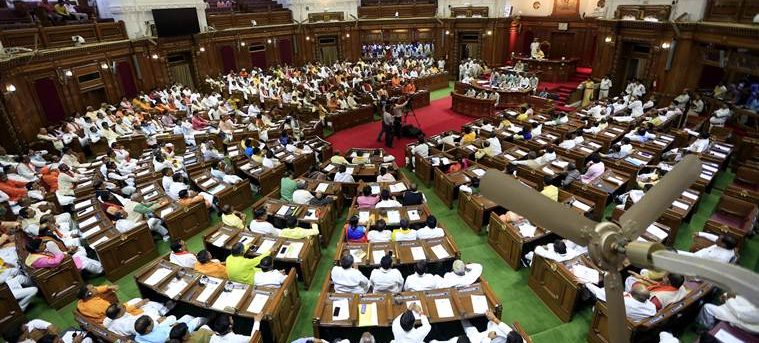- The above observation was uttered by none other than the Chief Justice of India recently possibly exasperated by the way business was conducted employing unproductive and widespread disturbances witnessed in the just-concluded monsoon session of the Parliament. The nation is witness to how blatantly few bills were passed in the ensuing melee where lack of quorum, debate, and exchange of viewpoints from the lawmakers ruled the roost. Why only the CJI, scores of concerned personalities from diverse fields have expressed grave concerns in the way business was conducted during the session. Of course, Parliament and legislative assemblies should pay heed to those concerns being expressed but won’t for obvious reasons.

PC: Subodh Asthana
- The time-honored norms are giving way for bills getting passed frequently without Houses in functioning order or without allowing legislators to speak on details of the proposed law or without threadbare scrutiny by House committees. The resultant outcome is that badly drafted laws by bureaucrats escape lawmakers’ scrutiny, and the lack of clarity invariably spawns copious and long-drawn litigation. Hence, the CJI’s observation that rush-job legislations end up becoming a millstone around the judiciary’s neck should ring alarm bells around the corridors of executive and legislature for its inherent concerns. With the opposition benches hell-bent on cornering the treasury benches on a variety of issues, the time spent in scrutinizing the bills is compromised.
- Looking back, the first Lok Sabha averaged 135 sittings a year, 16th Lok Sabha-the one before the current House-averaged just 66 sittings. These statistics will reveal a story in itself. The rot is even deeper in some of the state legislative assemblies. As per the PRS Legislative Research, Uttar Pradesh, Bengal, and Kerala, respectively, annually-averaged 24, 40, and 53 assembly sittings and 100, 122, and 306 functional hours between 2017 and 2019. Note that UP and Bengal assemblies elect 403 and 294 members, respectively, and such paltry working hours mean individual legislators, even when inclined to do so, don’t have adequate time to hone their law-making skills or to participate in legislative debates. The outcome is again half-cooked laws coming into effect.

PC: Gilles Verniers
- Most worryingly, the state assemblies also pass laws with huge consequences viz inter-faith marriage and cow slaughter that is subject to no legislative interrogation. One of the factors for the worrying trend could be the anti-defection law in force that demands MPs and MLAs to obey party whips. Any contrarian action would entail disciplinary action leading to forfeiture of the membership in the worst-case scenario. Unlike legislative functioning in the UK and US, our MPs and MLAs cannot go against the party lines even if they wish to question or raise dissenting voices against the leadership approach on bills drafted. Thus, embracing the well-oiled mechanism of thorough scrutiny, debate, and acceptance of opposition suggestions should ensure any bills drafted undergoes desired levels of screening. Heed what the CJI is suggesting.






